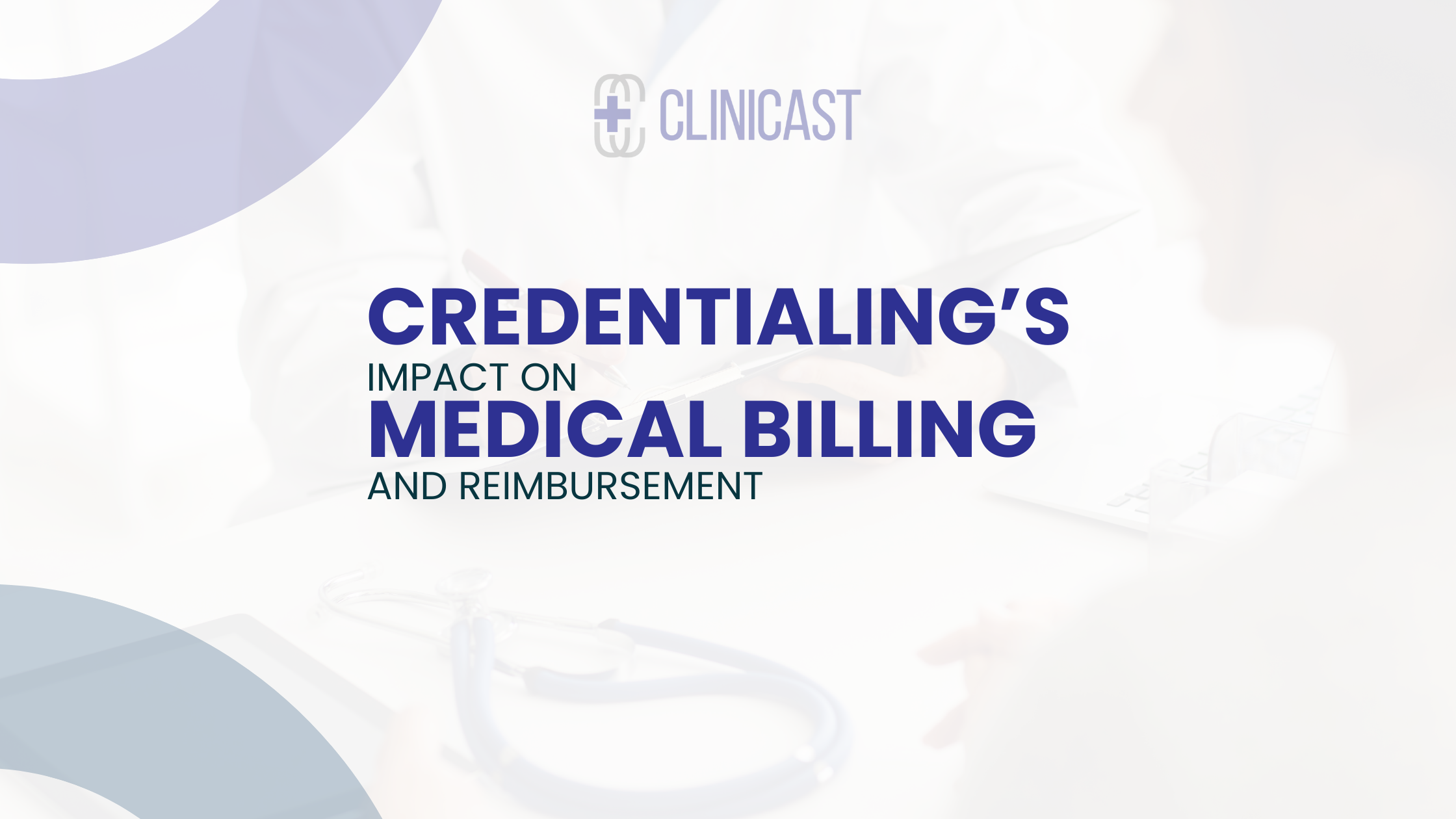In today’s intricate healthcare landscape, ensuring that patients receive quality care is paramount. But alongside patient care, an equally significant concern for doctors, physicians, small practices, and hospitals revolves around the financial aspects of healthcare. At the nexus of quality patient care and the fiscal well-being of healthcare practices lies the indispensable process of credentialing.
In the complex healthcare environment, quality patient care remains a top priority. However, the financial stability of healthcare practices is equally critical. At this intersection, credentialing emerges as an essential process.
Understanding Credentialing

But how does credentialing influence medical billing? How does it guarantee smooth billing and prompt reimbursements? Let’s explore credentialing’s role in these processes.
1. The Role of Credentialing in Medical Billing:
Credentialing evaluates and verifies the qualifications and practice history of healthcare providers. It ensures they meet professional standards. In the US, it’s vital for physicians to be credentialed to work with insurance networks and bill for their services.
2. Ensuring Seamless Billing Processes:
Credentialing aligns the practice or provider with the insurer’s requirements. When providers are credentialed correctly, it reduces the chances of claim denials due to eligibility issues. A reduced denial rate translates into a smoother billing process, ensuring that the healthcare provider or establishment can focus more on patient care and less on administrative hassles.
3. Building Trust and Credibility:
When providers are credentialed, it signals to patients and insurance companies that they have met rigorous standards of practice. This stamp of approval can enhance the provider’s reputation, leading to increased trust from patients and smoother interactions with insurance companies.
Credentialing ensures that practices and providers align with insurer requirements. Proper credentialing minimizes claim denials due to eligibility issues, leading to smoother billing. This allows healthcare providers to prioritize patient care over administrative challenges.
The Pitfalls of Neglecting Credentialing

Credentialing is crucial for smooth medical billing.
1. Delayed Payments and Reimbursements:
Without proper credentialing, claims can get rejected or denied, leading to delayed payments. This can strain the financial health of a practice, especially if it relies heavily on insurance reimbursements.
2. Potential Legal Repercussions:
In the USA, billing insurance companies without proper credentialing can lead to legal consequences, including fines and potential lawsuits.
3. Loss of Patient Trust:
Patients trust providers to manage not just their health, but also the administrative aspects of care. Regular billing issues can erode this trust, leading patients to seek care elsewhere.
Conclusion
The role of credentialing in medical billing is undeniable. It acts as a bridge between quality patient care and the financial sustainability of healthcare practices. For doctors, physicians, small practices, and hospitals in the USA, understanding and embracing the credentialing process is not just a best practice—it’s a necessity.
By ensuring proper credentialing, healthcare providers can guarantee seamless billing processes and timely reimbursements, thus safeguarding their practice’s reputation and financial health.
Frequently Asked Questions (FAQs)
Q1: What is the primary purpose of credentialing in the context of medical billing?
The primary purpose is to ensure that healthcare providers can bill insurance companies directly, ensuring smoother billing processes and timely reimbursements.
Q2: How does credentialing impact patient trust?
Credentialing signals to patients that a provider meets rigorous standards, thereby enhancing trust and credibility.
Q3: Can a healthcare provider bill an insurance company without being credentialed?
While technically possible, it can lead to claim denials, delayed reimbursements, and potential legal repercussions in the USA.
Q4: How often should healthcare providers renew their credentialing?
It varies depending on the specific insurance company and state regulations. However, most require re-credentialing every two to three years.
Q5: How does credentialing benefit smaller practices?
Proper credentialing ensures timely reimbursements, which is vital for maintaining cash flow and operational sustainability for smaller practices.


